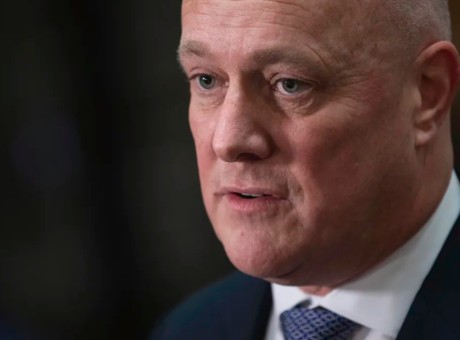The new Queenstown entity hoping to create a $1b tech industry locally
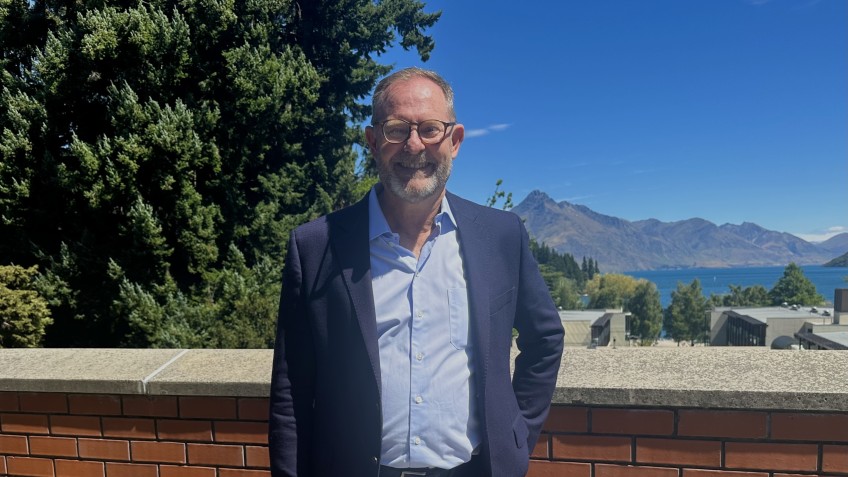
A new non-profit entity hoping to grow Queenstown's tech scene into a one-billion-dollar industry in 20 years has launched today, after numerous calls for the district to become more than just a place for tourism.
Technology Queenstown, or TQ, will sit alongside Destination Queenstown, DQ, and Study Queenstown, SQ, to drive economic development in the district.
Creating a thriving local tech sector has worked successfully over in the United States ski resort towns of Spokane (Washington), Bozeman (Montana), Boulder (Colorado) and Bend (Oregon), with an Accenture report released by TQ showing 20 percent of economic output in those locations is now attributable to tech.
Those on the ground today are hoping to replicate that sort of success in Queenstown.
Spearheading the project is Roger Sharp, who says the ball started rolling for the project three years ago, when it became evident that Queenstown needed to diversify itself as "tumbleweeds were metaphorically blowing through the streets" without tourists around.
"I got approached by the mayor, Jim Boult...and he said, 'look, we need to do tourism plus something else, can you help us, can you build something?'."
Although its official launch was today, the entity needs to more than double what's in the kitty to get through its first year, but Mr Sharp says acquiring the extra $600,000 needed is "quite doable".
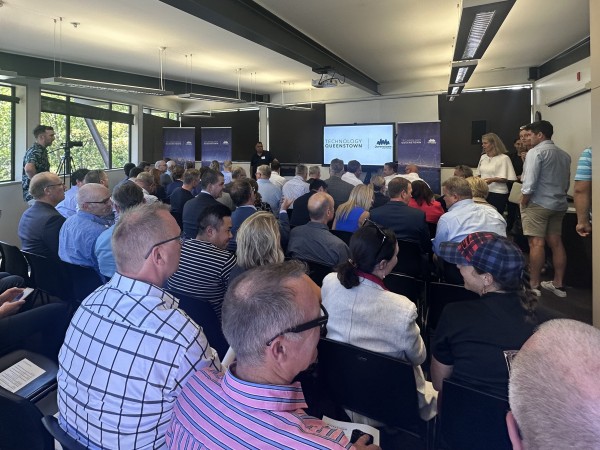
It was a packed event today for the launch of Technology Queenstown.
So what will this new entity do?
Mr Sharp says Queenstown's tech sector currently doesn't have a strategy or co-ordination; it's more informal, and typically quite focussed on its start-up community. Technology Queenstown will have a strategic focus.
It also plans to work with the Queenstown Resort College and the University of Otago to boost technology studies, as well as Destination Queenstown and the Queenstown Lakes District Council, all of which had representatives at the launch event today, held at the Queenstown Resort College.
Currently, tech makes up 1.5 percent of Queenstown's economy, or $100 million, but nationally the tech industry averages 7.5 percent.
Mr Sharp says transforming the tech sector is key to economic diversification, and Technology Queenstown is looking to those US towns for the ingredients for success.
"We've got to have an airport, we've got to have a university, you've got to have a labour force, you've certainly got to have affordable housing."
None of those who Crux spoke to had concrete solutions for how to create housing solutions for the extra 2,000 tech workers mooted.
"The numbers tell us that about 20,000 people are going to move to the district anyway over the next 20 years, so we're wanting one in 10 of them to be a well paid, sophisticated, tech professional," Mr Sharp says.
He is hopeful a sector shift will see larger companies drawn to the district, who will have the "economic power" to negotiate with landlords or property developers to build rental accommodation and lease it.
Aside from housing, Mr Sharp is focused on growing a "strong tertiary education presence" in the town, and he says the University of Otago is already discussing ways to grow their offerings locally.
There's been talk around the town in recent years of the potential for a new standalone 'economic development' entity, so Crux asked Mr Sharp if there's a potential for Destination Queenstown and Technology Queenstown to merge together to form one.
But it's too soon for that sort of talk, he says.
"It's too early days to contemplate that; my immediate focus is that I've got about 30 to 40 percent of the money we need to launch. The immediate focus has been 'have we actually got enough money in the bank?'."
Mr Sharp says there are five corporates who've committed to handshake deals to support Technology Queenstown.
One of the 80 attendees at the event today, Mayor Glyn Lewers was equally excited for the enterprise to launch, and for its potential.
"Obviously it [a thriving tech industry] builds resilience in our economy. That's the number one thing, so when you have a downturn in the tourism sector, you've got others that will shoulder that low.
"I think I first came across this when I was a councillor and trustee of Startup Queenstown, and to see this come to fruition today, it's quite impressive."
He says he's "proud" of his council's role in relation to the new entity coming together.
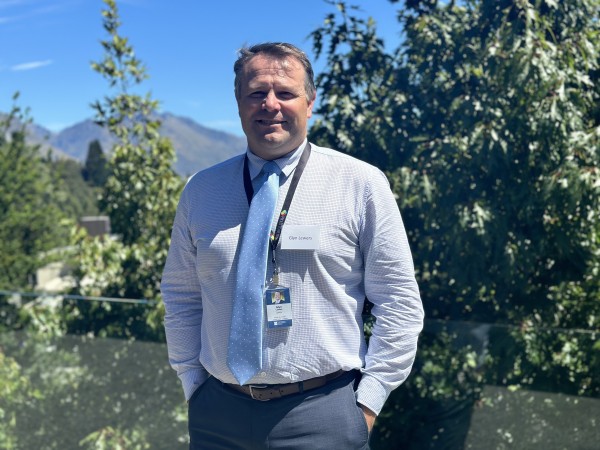
Mayor Glyn Lewers: 'That's the number one thing, so when you have a downturn in the tourism sector, you've got others that will shoulder that low'.
"I'm quite proud that council is mature enough to say to the private sector, go create the success and let's celebrate the success you create, and we've seen it with the DMP [destination management plan], and now we're seeing it with Queenstown Technology."
The council does have its own Economic Development Unit, which is tasked with working to diversify the economy and encourage higher-value jobs.
Mayor Lewers says the needs of tech workers when it comes to housing can have a degree of flexibility not always possible in the hospitality or tourism sectors, as they can spread the housing demand a lot further due to their ability to work remotely.
"You can live in Wānaka, you can live in Cromwell, you can live down in Kingston, Lumsden, so we can spread that load across the district a lot easier, but it [tech] also generates a higher income."
While he says "financial constraints" prevent the council from taking a more active role in housing provision, the council is encouraging and supporting others in the housing space.
He says a lot of Queenstown and Wānaka high school students head off to university - more than the national average - and a thriving tech scene provides reason and incentive for them to return.
Also at the event today was University of Otago's deputy vice chancellor of research and enterprise Professor Blaikie, who says Queenstown's tech scene needed something like Technology Queenstown to kick-start change.
At the moment, Professor Blaikie says not many of his university's students will head to Queenstown after graduation to start their careers.
"A lot of our students will work here in the summer, but in terms of careers positions, probably not that many [graduates will go on to work in Queenstown], because it's not a big centre for [them].
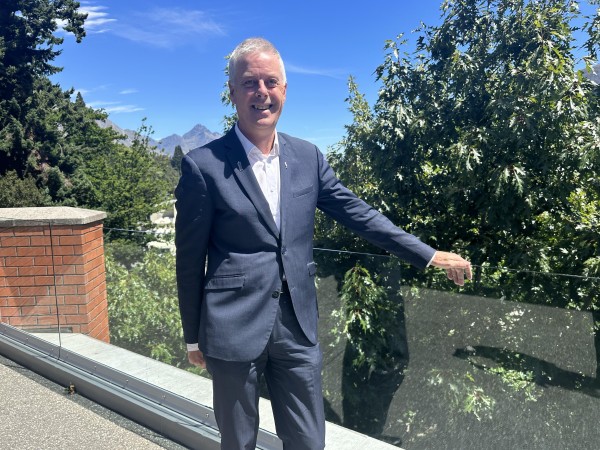
Professor Richard Blaikie is anticipating Technology Queenstown will bring about more opportunities for its students and graduates.
He's hoping with the launch of this new non-profit, Queenstown can become more of a place for internships and for graduates to settle down in.
"Tech has that opportunity to grow very, very big businesses, without a lot of a lot of environmental impacts."
He's hoping that the collaboration of the different parties sitting around the table and the "different skills" they bring, will help create change and bring better opportunities for his students and graduates.
Main image: Roger Sharp, who is driving new not-for-profit Technology Queenstown, or TQ, bringing together key stakeholders including the Queenstown Lakes District Council, the University of Otago, the Ministry of Business, Innovation and Employment and the Queenstown Resort College.







